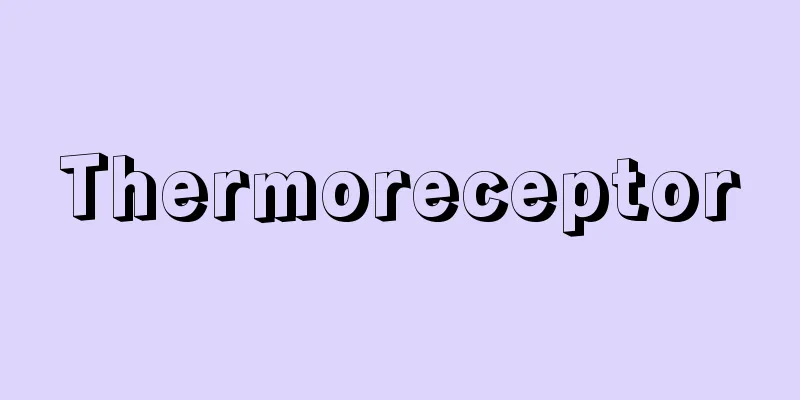Home - katei (English spelling)

|
The living space and atmosphere of individuals centered around the family. When people generally talk about home and family, they often use the words synonymously without being particularly conscious of the difference between the two. However, while family is described as a collective entity, home is always accompanied by an expression that indicates a place, such as a place where the family lives, a base for life, or a home base. [Masako Kawakami] Family RelationshipsBy the way, a home does not only mean a house or a residence where people live, but is characterized by the fact that the residence is usually composed of facilities, equipment, and things that have meaning to the people who live there and are acquired and arranged for the convenience of life. Furthermore, the people who live there are not simply a group of unrelated individuals, but include not only family members but also people who are bound by moral relationships other than family members. It is difficult to imagine a group of people with moral relationships other than family members from the meaning of the Japanese word "family," but it is easy to imagine it if you use the English word "home" to refer to people in a nursing home or a nursing home. In other words, a home can be said to be a place where the relationships between people and things, and between people, exist with extremely organic connections. [Masako Kawakami] The home as a living spaceHowever, the reason why the home is described as a "living space" rather than simply a "place where the family lives" is because "place" strongly implies a fixed connotation of a certain area or position within space. On the other hand, "space" is also the basic form that establishes the three-dimensional world along with the concept of time, and allows us to sense the breadth that is created through correlation with the way humans are. This is why people can sense a space as wide or narrow, open or closed. The essence of human life lies in the creative act of working toward the values and goals that we have set for ourselves and trying to realize them. In general, the expression "living space" includes the meaning of directing the essential daily activities of humans as a function of the home with feasibility. Furthermore, in the family, in addition to the relationships between people and things, and between people, the relationship between a person and themselves, that is, identity (the sameness of one's own existence), is also an important element. In the 1990s, issues of the presence of fathers in the family and problems in marital relationships, such as domestic separation, began to emerge, but these are not just problems of personal relationships, but also problems of relationships with things such as houses, rooms, and dining chairs, and at the same time, they are symbolic of the situation of self-alienation in the family. [Masako Kawakami] Home as an atmosphereIn English, "at home" means to be at home, but it also means to relax and become familiar. These meanings are not simply generated by the relationship between oneself and the house, objects, or people, but are the moods and feelings one feels by finding one's meaning in life and a stable position within it. Sometimes, unmarried single people, while already relying on their own families, talk about their families as "(in the future) having a family" or "(now) not having a family," while elderly people who became single after getting married due to the death of their spouse still feel that they have a family as an activity. Also, the reason why homeless people are not called houseless is because they have not only lost the homes, objects, and close and solid relationships they had in the past, but also because they do not have the atmosphere that a home exudes. At home, there is something that can be called an atmosphere created by relationships with people, objects, and the person themselves. [Masako Kawakami] The Modern Family SituationHistorically, the word "family" became common in Japan after the Meiji period, and its position and role have changed over time, but in modern times, it is based on the spirit of Article 24 of the Constitution, which was enacted after the Second World War, which states the dignity of the individual and the equality of the sexes. During the period of high economic growth in the 1970s, the family was emphasized as an escape from society and a shelter, as represented by the idea of living in one's own home. However, as society changed, the fragility of the family itself became apparent, and the inability to fully fulfill this function led to the current situation of what is called family breakdown. In addition, since the late 1990s, information and communication devices such as computers have rapidly entered the home, and as they have promoted the personalization of information, on the one hand, they exist as something that promotes the breakdown of the family, but on the other hand, they have brought about the possibility of the home becoming a base for new information transmission and creation. People are now gaining access to tools that can provide an opportunity to obtain external information that complements the essential functions of the family, such as childcare, nursing care, and care, relieve various stresses, and create new family relationships. In that sense, although it is possible to find a new kind of comfort in the home, it also means that work and other chores will be directly involved in the home, and true comfort will not be found unless one has the active ability and perspective to manage information. New questions are being asked about individuals' views on the home, as well as the culture and spirit of the home. [Masako Kawakami] "Man and Space" by Otto Friedrich Bornau, translated by Otsuka Keiichi et al. (1978, Serika Shobo)" ▽ "Being and Time, Volumes 1 and 2, by Martin Heidegger, translated by Hosoya Sadao (Chikuma Gakugei Bunko)" ▽ "Lifestyle and Home Management: Toward Change and Diversification" by Otani Yoko, Tsuji Yoshiko, Fujii Chika and Matsuoka Akiko (1995, Kenpakusha)" ▽ "Iwanami Lectures: Contemporary Education 7: Shaking Families and Communities" edited by Saeki Ko et al. (1998, Iwanami Shoten)" [References] | | | |Source: Shogakukan Encyclopedia Nipponica About Encyclopedia Nipponica Information | Legend |
|
家族を中心とした諸個人の生活空間およびその雰囲気。一般に人が家庭や家族について語る際、その違いをとくに意識せずに同義に使うことが多い。しかし、家族については人間の集団性を示す表現をするのに対し、家庭については家族が生活する場であるとか、生活のよりどころであるとか拠点であるとかいうように、場所を意味する表現がかならず付帯する。 [川上雅子] 家庭の関係性ところで、家庭は人が住まう場所としての家屋や住居のことだけをいうのではなく、その住居が、たいていはそこに住まう人間にとって意味をもち、生活に都合がよいように獲得・配置している設備や備品、モノによって構成されている点に特徴がある。また、そこに住まう人間は単に無関係な個々人の集まりではなく、家族はもとより、家族以外の人倫的関係で結ばれた人々も含まれる。家族以外の人倫的な関係の集団というと日本語の「家庭」の語意からは想像しがたいが、たとえば英語の「ホーム」を用いて老人ホームやナーシング・ホームの人々というと容易に想像できるであろう。すなわち、家庭は人とモノとの関係、人と人との関係がきわめて有機的なつながりをもって存在するところであるともいえる。 [川上雅子] 生活空間としての家庭しかし、家庭を単に家族の「生活の場」といわず「生活空間」であると表現するのは、「場」には空間内の一定の区域、位置という固定的な意味合いが強く含まれるからである。一方、「空間」は時間概念とともに三次元的な世界を成立させる基本形式でもあり、人間のあり方との相関によって創出される広がりを感得できる。人がある空間を広くも狭くも、開放的にも閉鎖的にも感じられるのはこのためである。人間の生活の本質は、自らが設定した価値や目標に向かい、その実現を図ろうとする創造行為にある。総じて「生活空間」という表現には、家庭の機能として、人間の本質的な生活行為を実現可能性をもって方向づける意味が包含されている。 そのうえ、家庭では人とモノ、人と人との関係のほかに、人とその人自身との関係、すなわちアイデンティティ(自己存在の同一性)も重要な要素となる。1990年代になって、家庭における父親の存在や、家庭内別居などにみられる夫婦関係の問題が表出してきたが、これらはいずれも人的な関係のみならず、家屋、部屋、食卓の椅子(いす)などに代表されるモノとの関係の問題であると同時に、家庭における自己疎外の状況を象徴している事柄である。 [川上雅子] 雰囲気としての家庭なお、英語でアット・ホームat homeとは家にいることであるが、気楽にくつろいで、慣れ親しむという意味もある。これらの意味は単に自己と家やモノ、人との関係から生み出されるものではなく、自らの存在意義や安定的な位置をその内にみいだすことにより感得される気分、ムードそのものである。ときに未婚の単身者の場合、すでに自らの家庭に依拠しながら「(これから)家庭をもつ」とか「(いまは)家庭をもっていない」と家庭について語り、また結婚後、配偶者の死を契機に単身となった高齢者は、なお営みとしての家庭があることを感じる。また、ホームレスをハウスレスといわないのは、単に彼らが過去にもっていた家やモノ、人との親密で確固たる関係を失っているだけではなく、家庭の醸し出す雰囲気そのものをもたないからである。家庭には人、モノ、その人自身との関係から創出される雰囲気ともいうべきものが存在する。 [川上雅子] 現代における家庭の状況家庭という語は、歴史的には明治期以降日本に一般化し、その位置づけや役割も時代とともに変化を遂げてきたが、現代は第二次世界大戦後に制定された憲法第24条の精神である個人の尊厳と両性の平等がその根幹を支えている。1970年代の高度成長期にはマイホーム主義などに代表される社会からの逃避やシェルター(避難所)としての家庭の姿が強調されたが、社会の変化に伴い家庭自身の脆弱(ぜいじゃく)さが露呈し、その機能を十分に果たすことができないまま家庭崩壊などとよばれる状況を今日にもたらした。また、90年代後半以降、急速に家庭に入り込んだコンピュータなどの情報通信機器は、情報の個人化を促したため、一方では家庭崩壊を助長するものとして存在しつつ、一方では家庭が新たな情報発信、創造の拠点となる可能性をもたらした。人々は育児や介護、養護など家庭に不可欠な機能を補う外部情報を得、諸々のストレスを解放し、新たな家族の関係性を生み出す契機となる道具をいま、掌中に納めつつある。その意味で、従来とは異なる安らぎが家庭において得られる可能性があるものの、仕事などの雑事も家庭に直入することになり、情報をつかさどることのできる能動的な能力やまなざしがなければ真の安らぎは得られなくなる。新たに個人の家庭観や家庭の文化、精神が問われている。 [川上雅子] 『オットー・フリードリヒ・ボルノウ著、大塚恵一他訳『人間と空間』(1978・せりか書房)』▽『マルティン・ハイデッガー著、細谷貞雄訳『存在と時間』上下(ちくま学芸文庫)』▽『大谷陽子・辻禎子・藤井千賀・松岡明子著『生活・家庭経営――変化と多価値化に向けて』(1995・建帛社)』▽『佐伯胖他編『岩波講座 現代の教育7 ゆらぐ家族と地域』(1998・岩波書店)』 [参照項目] | | | |出典 小学館 日本大百科全書(ニッポニカ)日本大百科全書(ニッポニカ)について 情報 | 凡例 |
Recommend
The National Council of Christians in Japan
An organization for the consultation and cooperati...
Taboo clothing - Imigoromo
…Today, it is used to mean going out clothes, but...
The Rebellion of Yi Yi
In China, in 1262 (3rd year of the Zhongtong era),...
Cylindrical surface - Enchumen
...The lateral area of a right circular cylinde...
Pyrosulfuric acid; disulfuric acid
Chemical formula: H 2 S 2 O 7 . Also known as pyro...
Krong Chong
Popular song from Indonesia and Malaysia. It origi...
Matsuna - Matsuna
An annual plant of the Chenopodiaceae family that ...
Frisia Islands (English spelling)
A group of islands along the northern coast of con...
Keel - Ryukottokki
The protrusion that protrudes from the center of t...
Amenooshihomimi-no-Mikoto - Amenooshihomimi-no-Mikoto
A god who appears in the Kojiki and Nihon Shoki. H...
Computer control
Control refers to manipulating input so that the o...
Plastic model - Plastic model
An assembly model toy made of plastic parts. It i...
Colima [river] - Colima
A river that originates in the Kolyma Mountains in...
Assay - Shikin
Quantitative analysis of the metal content of mine...
Narabayashi Souken - Narabayashi Souken
A physician of Dutch medicine. The second son of ...





![Yaita [city] - Yaita](/upload/images/67cd08fed2263.webp)



